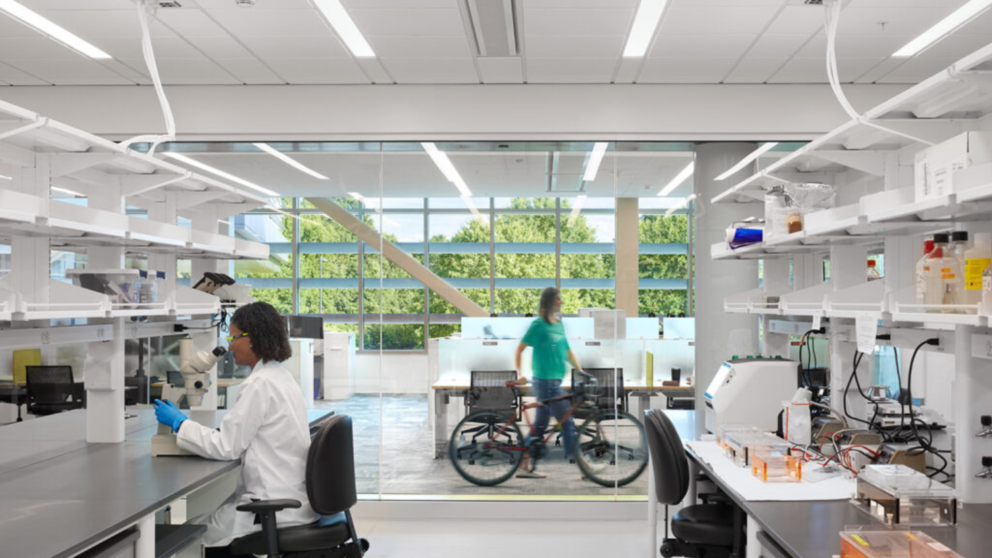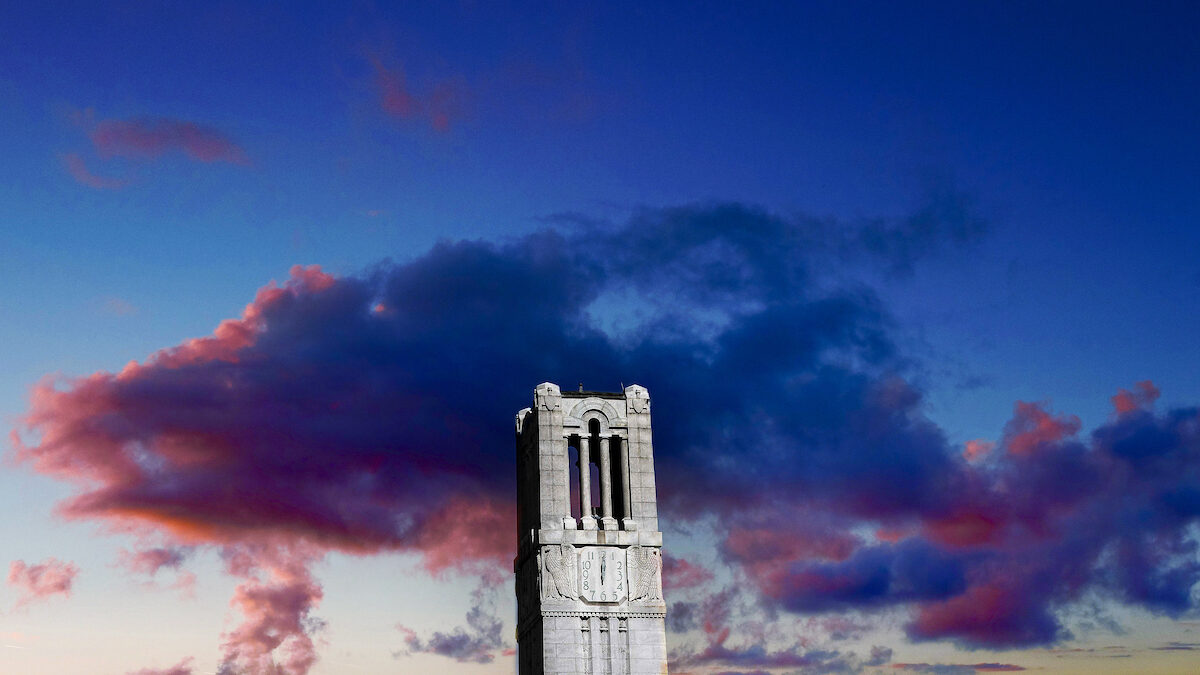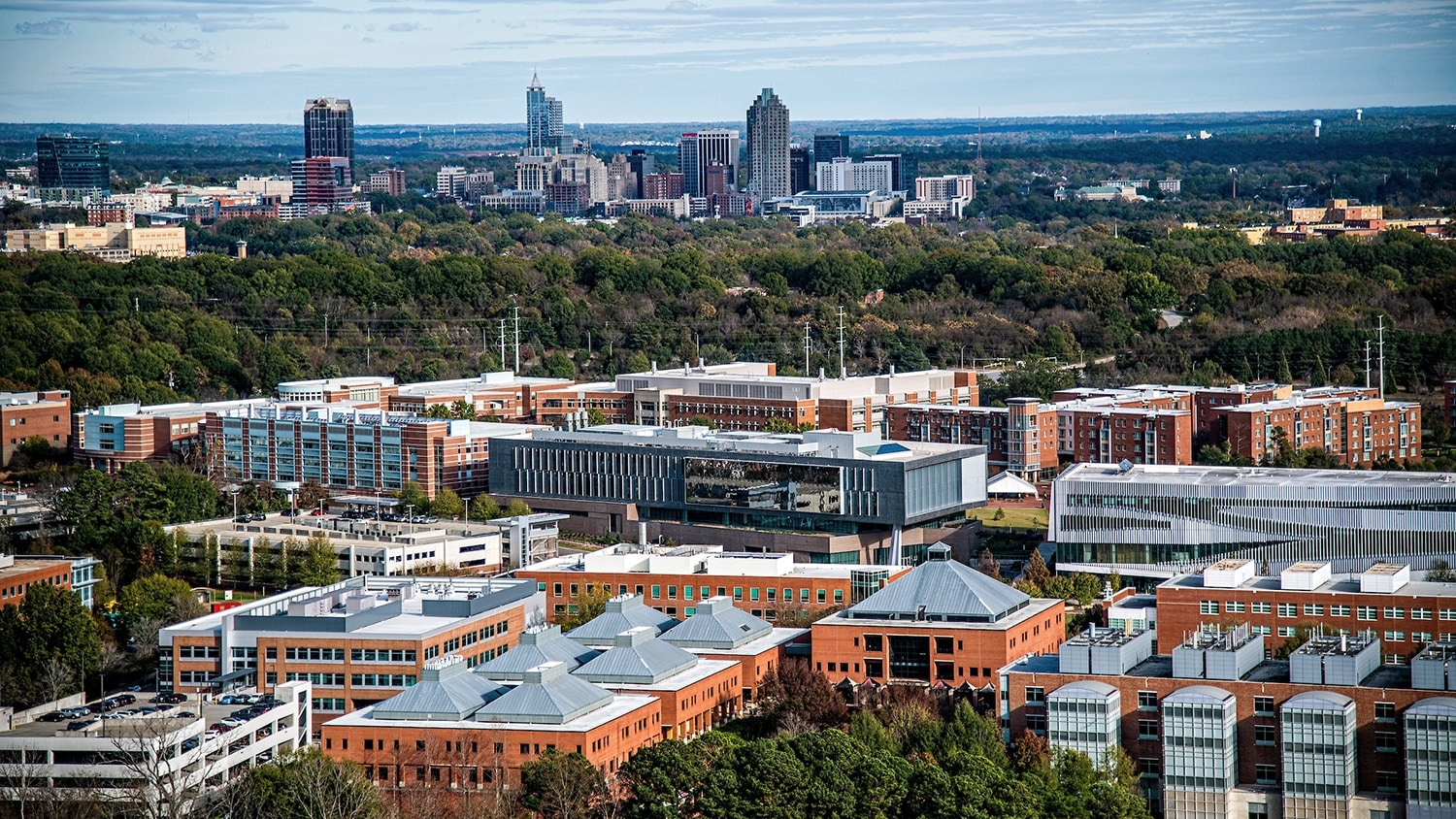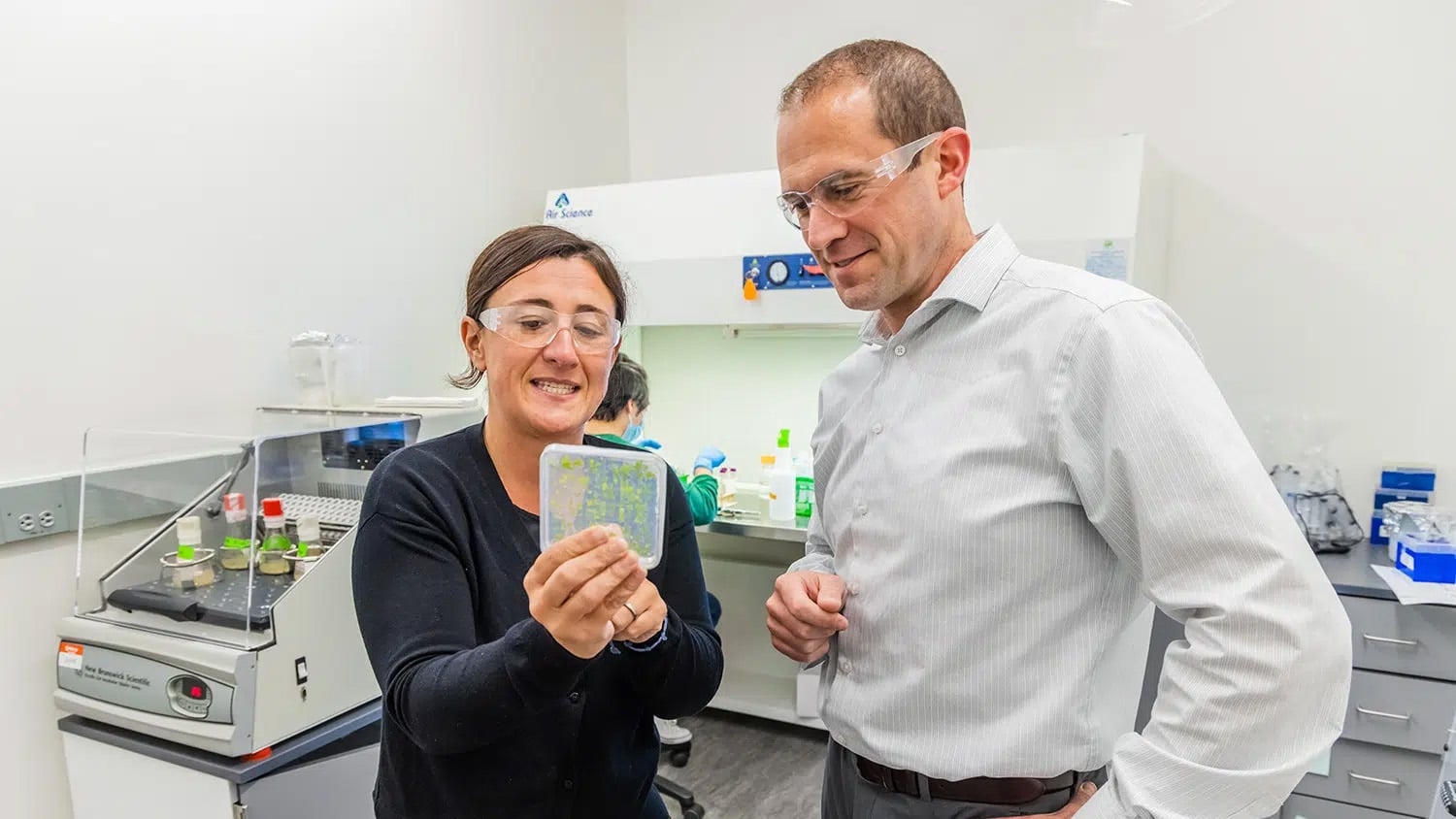New Sustainable Labs Program Launched

A new program called Sustainable Labs empowers NC State researchers and lab users to adopt sustainable practices in campus lab spaces.
The program is a result of collaboration between the University Sustainability Office, Energy Management, Waste Reduction and Recycling and Environmental Health and Safety.
Sustainable Labs, launched as a pilot program in January 2024, targets energy consumption, waste reduction, water conservation and safety enhancement in lab spaces at NC State. It also aims to contribute toward the university’s value of sustainability in our commitment to wise stewardship of resources, prudent financial planning and environmentally responsible operations.
The Sustainable Labs program is currently being piloted in the following spaces:
- Biotechnology Program Teaching Lab (BIT) with Dr. Carlos Goller and Robert Thomas
- The Laboratory of Soft Materials & Green Chemistry with Dr. Lucian Lucia
- Whitehill Lab – Christmas Tree Genetics with Angela Chiang
- Buchler Lab with Jason Flynn
Others interested in joining the Sustainable Labs program can kickstart their journey online with the REPORTER course, Sustainable Labs Certification. Information is also available on the program website, go.ncsu.edu/sustainablelabs, which hosts an interest form for a Sustainable Lab Certification that will be available by the end of the spring semester.
Critical to the development of the Sustainable Labs program is student Sarah Jacobs, an economics and environmental technology and management student who has focused on lab sustainability through her two-semester internship in the Campus As A Classroom program. Campus As A Classroom engages students in real-world efforts to advance sustainability on NC State’s campus.
“At NC State, labs make up less than half of campus spaces yet account for a significant portion of the university’s overall energy use,” Jacobs said. “We have found that taking actions as small as remembering to shut a fume hood sash or running a dishwasher at full capacity can make a huge difference in reducing energy use.”
Jacobs notes that most sustainable actions can fall into infrastructure-based enhancements, like the installation of variable air volume fume hoods, behavioral approaches or a combination of both.
“The program is only as successful as the people who care about it. Everyone who works in a lab has the potential to impact its environmental footprint on a daily basis. A sustainable lab recognizes that environmental consciousness also encourages a strong safety culture,” Jacobs said.
Other best practices that people can make in their labs include:
- Turning off lighting when not in use
- Shutting the fume hood sash
- Recycling laboratory materials correctly
- Using less hazardous chemicals
- Running dishwashers at full capacity
- Inventorying materials and chemicals to reduce over-ordering
NC State is currently ranked 2nd among public universities in the country for research technology transfer and commercialization. This achievement underscores the importance of the Sustainable Labs program.
“If we can embed sustainable practices in our research here, just imagine how large of an impact we can have on the world around us,” Jacobs said.
This post was originally published in Sustainability News.


